The gender-balanced team (5 female and 6 male professors) has diverse and complementary expertise in synthesis, processing and toxicology aspects of materials used in the electronics industry (Moores, Dorval-Courchesne, Boffito, George), fabrication and characterization of green organic and conventional (inorganic) electronic devices’ components (Santato, Kherani, Moores), WEEE recycling and knowledge sharing with WEEE importer countries (Chaouki, Holuszko, Rosei) and sociocultural and psychological studies on consumer electronics (O’Gorman).
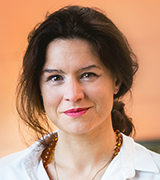 Clara Santato
Clara Santato
Clara Santato (Ph.D., Geneva U, 2001), Canada Research Chair in Sustainable Organic Electronics: Materials, Processes Devices, is Professor in the Department of Engineering Physics at Polytechnique Montreal.
Dr. Santato’s key achievements include: seminal work on WO3-catalysed water photoelectrolysis for hydrogen (H2) production (>1800 citations); groundbreaking work on organic (carbon-based) electronics, specifically on Organic Thin Film Transistors (OTFTs, >1100 citations). For her research on solar energy conversion and light-emitting devices, she has been elevated, in 2016, to the Institute of Electrical and Electronics Engineers (IEEE) Senior membership. She demonstrated the first melanin biopigment-based supercapacitor. For this work, she was awarded the 2018 Materials Research Society (MRS) Communications Lecture Award. She gave 40 invited talks and 4 keynote lectures at international conferences in the past 5 years. Her research has led to 85 peer-reviewed articles, 8 book chapters, and 1 edited book. Clara serves as Editor of the Journal of Power Sources and a member of the Advisory Board of the Journal of Materials Chemistry C and Materials Advances (Royal Society of Chemistry) as well as NanoExpress (Institute of Physics). Since joining Polytechnique, she has supervised over 80 trainees from 15 countries (10 PDFs, 25 Ph.D. students, 16 MSc students, and 32 undergraduate students). Clara is the PI of a Canada-wide Collaborative Research and Training Experience in Sustainable Electronics and Eco-Design (CREATE SEED, 2020-2026) initiative, funded by NSERC, bringing together some 20 universities and industrial partners in Canada and abroad. She has conducted and led research projects in both European and North American institutions (including Purdue U and Cornell U). Clara is the General Chair of the 2021 Annual IEEE Conference on Nanotechnology, the flagship conference of the IEEE Nanotechnology Council. She organized several symposia in Semiconductors & Energy for the MRS Meetings and the Int. Soc. of Electrochemistry (ISE, she is the ISE representative for Canada). She is member of the Advisory Board of the National Research Council Canada (NRC) - Security and Disruptive Technologies Research Center (2018-21).
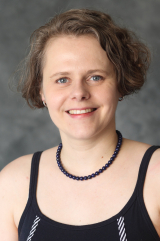 Audrey Moores
Audrey Moores
Associate Professor, Chemistry, McGill U, Tier II Canada Research Chair in Green Chemistry (2007-17) trained 58 HQP. She is a leading expert in the field of catalysis, with a special emphasis on sustainable processes and use of Earth abundant starting materials, she was invited to give over 100 presentations. She is a member of the advisory board of the Green Chemistry Institute (America Chemical Society), and an associate editor for ACS Sustainable Chemistry & Engineering. She received a Discovery Accelerator Supplement Award in 2018 from NSERC, was invited by the United Nations Industrial Development Organization to teach a 5-day workshop in South Africa in the fall of 2018 and was recognized as one of the three finalists for the McGill Principal’s prize for public engagement through media in 2019. She will co-chair the Gordon Research Conference in Green Chemistry in 2022. Her group will synthesize components for electronics along the principles of green chemistry. In particular, she will use solid state chemistry techniques to create abundant element nanomaterials and plastics from biomass.
Associate Professor, Chemical Engineering, Poly, Tier II Canada Research Chair in Intensified Mechano-Chemical Processes for Sustainable Biomass Conversion (50 HQP trained since 2016), is Head of the Engineering Process Intensification and Catalysis (EPIC) group. She received prestigious Canadian and international prizes, including the Banting post-doctoral fellowship, GreenTalents 2012 and the Australia Awards Endeavour Research Fellowship. She authored one book and several papers on scientific communication. Besides her expertise on biomass to chemicals mechanistic pathways, her expertise also includes sustainable plant design approaches. She will contribute state-of-theart continuous manufacturing approaches for both inorganic and organic materials, including spray-drying, ultrasound and microwave continuous reactors. Prof. Boffito will also provide her expertise on the design of industrial processes by compiling techno-economic analyses to attain commercial scales for processes to manufacture electronic materials. Her approach to sustainable manufacturing includes calculating the economics of mass production by numbering up modular units for distributed, local manufacture, rather than traditional scale-up, linear, approaches. EPIC will identify viable chemical routes from biomass to chemicals by applying process intensification principles to reduce energy requirements, minimize solvents and production waste, so as to improve process economics and sustainability. Boffito participates in an active CREATE program Process Engineering of Emerging Nano-Medicines (PrEEmiuM). There is no overlap with the proposed CREATE SEED program.
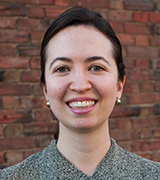 Noemie-Manuelle Dorval Courchesne
Noemie-Manuelle Dorval Courchesne
Assistant Professor, Chemical Engineering, McGill U (41 HQP trained since 2017) is a chemical engineer and biochemist, working on the development of novel biopolymers and composite materials derived from biology. She completed her PhD from MIT in 2015, and her postdoc at the Wyss Institute for Biologically-Inspired Engineering at Harvard in 2017. Her research focuses on the fabrication of protein-based materials with novel properties, using scalable and environmentally friendly processes. As part of the training program in sustainable electronics, her group will use multidisciplinary skills in synthetic biology and materials engineering, to fabricate and study novel biocompatible and biodegradable protein-based electronics.
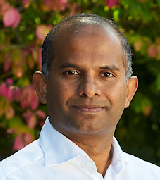 Saji George
Saji George
Associate Professor, Food Science and Agricultural Chemistry, McGill U, Canada Research Chair in Sustainable Nanotechnology for Food and Agriculture. Previously, Dr George was spearheading the Centre for Sustainable Nanotechnology at Nanyang Polytechnic, Singapore, where he worked on the health risks of nanomaterials and environmental contaminants. Dr George has authored 56 peer- reviewed articles, five patents and over 30 invited talks and has trained over 70 HQPs. He serves as reviewer and editorial board member for many leading journals in the field of nanotechnology (nano-bio interactions). His excellence in teaching and research has been recognized by the Ministry of Education, Singapore, through the best mentor award and PS21 ExCEL Gold/Silver Awards in 2015 and 2016. His research group has expertise and resources for high throughput screening of materials using in vitro and small organism models for assessing potential toxicity of materials employed in the electronics supply chain and in developing guidelines for their safe use and tools for regulatory oversight.
Professor, joint appointment Electrical & Electronic Engineering and Materials Science & Engineering, U of Toronto, has trained 106 HQP. He leads the Advanced Photovoltaics-Photonics and Devices (AP2D) research laboratories, pursuing R&D activities in thin film semiconductors and devices. He is a recipient of a number of awards including the Engineering Medal in Research and Development (awarded by Professional Engineers Ontario and Ontario Society of Professional Engineers) and he is Lifetime Fellow of the American Physical Society, Fellow of the Canadian Academy of Engineering as well as Fellow of the Royal Society of Arts. AP2D will identify opportunities for optimal device microand nano-fabrication processes that advance sustainable design, including investigating recycling and recovery processes for Canadian industry.
 Jamal Chaouki
Jamal Chaouki
Professor, Chemical Engineering, Poly, Process Engineering Advanced Research Lab (PEARL), Principal Chair Holder of the Total Research Chair in hydrodynamic modeling and catalytic reactions of multiphase processes in extreme conditions, director of the Biorefinery Center at Poly, trained +70 HQP. He is editor of Chemical Product and Process Modeling and Fellow of the Canadian Academy of Engineering. He has created four start-ups with his students: Formmat Tech. Inc., Shopmedia Inc., Pyrowave Inc. and Ecolomondo. PEARL, one of the largest laboratories for thermal treatment of waste in the world, will develop processes to convert plastic waste from WEEE to heat & power, fuels and chemicals as well as recycle rare earth elements.
Associate Professor, Mining Engineering, University of British Columbia; co-founder and leading scientist of the Urban Mining Innovation Center, UBC. More than 30 years of experience in Mineral Processing Engineering working with the industry, academia, and government. Previously worked at the University of Alberta, then Alberta Research Council, Edmonton, Alberta, also held a senior Licensed Scientist position at the British Columbia Ministry of Energy in Victoria, B.C, and through the years she was continuously engaged in consulting for the mining industry. She worked at the Julius Kruttschnitt Mineral Research Centre, at the University of Queensland, Australia and she was a Senior Research Engineer before joining UBC as a faculty. In 2015, she co-founded the Urban Mining Innovation Center dedicated to research in the area of waste re-processing. The Center has attracted several local recycling companies to collaborate with on the recovery of valuable metals and non-metal fractions from the otherwise municipal waste streams such as e-waste, LED, and plastic. For this activity, she has been interviewed by BBC, CBC, Radio Canada International, and India Today.
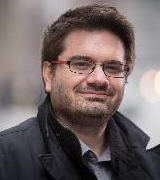 Federico Rosei
Federico Rosei
Professor, INRS, Canada Research Chair in Nanostructured Materials, UNESCO Chair in Materials and Technologies for Energy Conversion Saving and Storage, has trained >150 HQP. He is Fellow of the Royal Society of Canada, of the Canadian Academy of Engineering, of the African Academy of Sciences and of the European Academy of Sciences (among many others). He has received numerous awards, including the NSERC EWR Steacie Memorial Fellowship, and the Jose Vasconcelos Award for Education (World Cultural Council). His group will engage in knowledge sharing on best practices to handle WEEE but also challenges faced by WEEE importer countries.
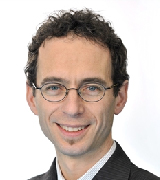 Manuele Margni
Manuele Margni
Professor, Mathematics and Industrial Engineering, Poly, is co-chair holder of the International Life Cycle Chair, the main research unit of the CIRAIG. He trained 38 HQP since his appointment at Polytechnique. He will work on the assessment of impacts, risks and benefits related to existing and new products, services and technologies to support decision making toward a full circular and environmentally sustainable transition.
 Marcel O’Gorman
Marcel O’Gorman
Professor, English Language & Literature, U of Waterloo, University Research Chair, Director of the Critical Media Lab (CML), has expertise in creative design and technical communication. The CML is located in the Communitech Hub, a burgeoning tech incubator and think-tank where CML facilitates ethical and values-based research with industry partners. In general, the Critical Media Lab (CML) will facilitate communication and creative design for the entire research team. First, the CML will develop reports that aggregate research from the various participants on the team so that results are communicated in a clear and consistent manner. The CML will also lead the development of knowledge mobilization projects in print, oral and online formats for non-academic audiences. Drawing on its expertise in creative design, the CML will lead design workshops that provide a space for speculation on new products, materials, and services that suit the mandate of the larger research team.


 Daria Boffito
Daria Boffito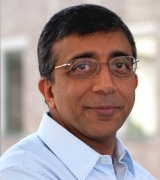 Nazir Kherani
Nazir Kherani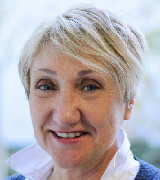 Maria Holuszko
Maria Holuszko